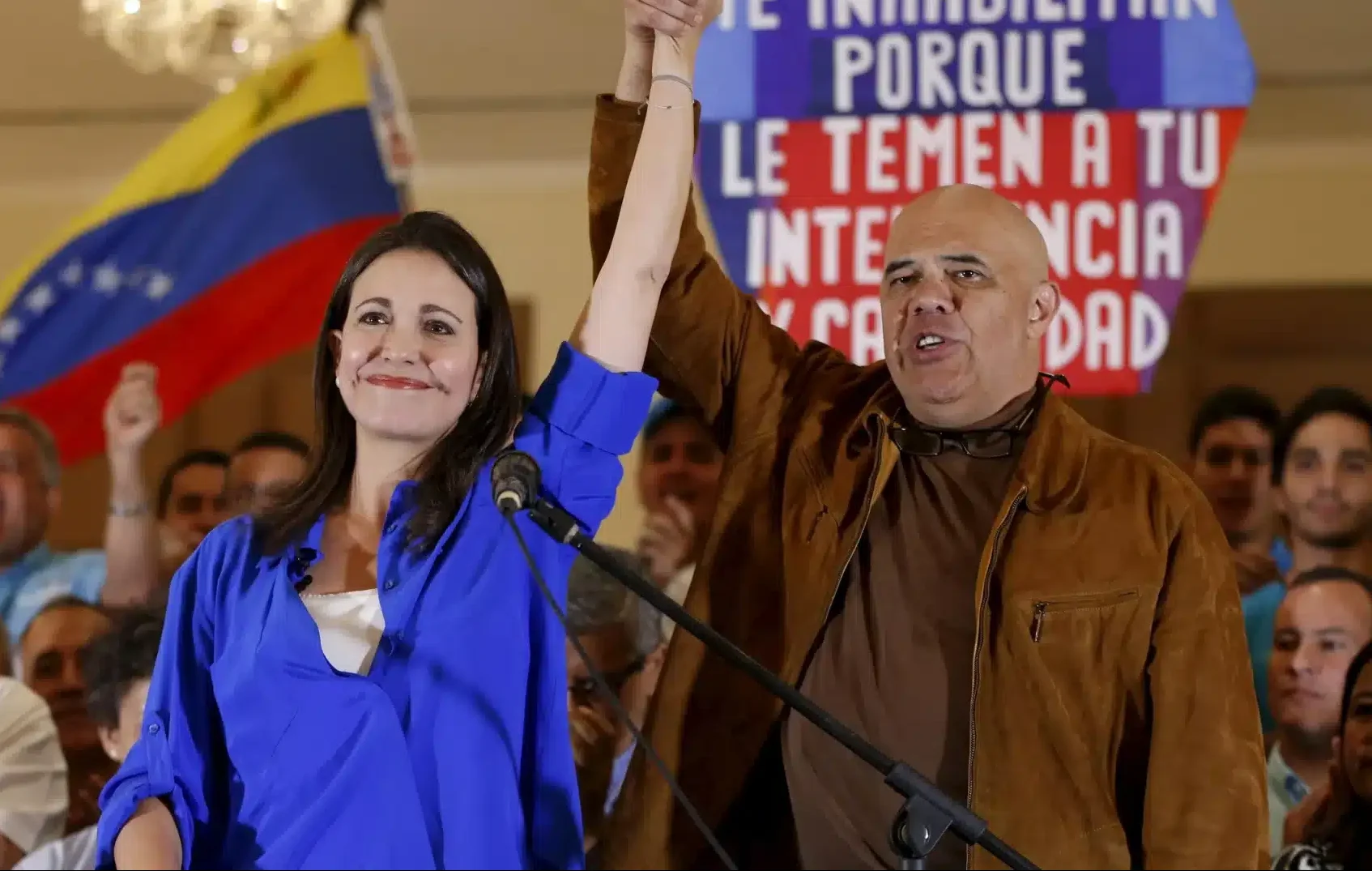
Opposition figure Jesús "Chuo" Torrealba (right) raising the hand of far-right politician Maria Corina Machado (left) and during a MUD event in 2015. Photo: Carlos Garcia Rawlings/Reuters/File photo.

Orinoco Tribune – News and opinion pieces about Venezuela and beyond
From Venezuela and made by Venezuelan Chavistas

Opposition figure Jesús "Chuo" Torrealba (right) raising the hand of far-right politician Maria Corina Machado (left) and during a MUD event in 2015. Photo: Carlos Garcia Rawlings/Reuters/File photo.
Jesús “Chuo” Torrealba, the former executive secretary of the Democratic Unity Roundtable (MUD) that played a key role in one of the rare successes of the anti-Chavismo movement in Venezuela’s electoral history (2015), has raised concern regarding a prevailing view that the upcoming opposition primary elections might turn out to be lackluster, inconsequential, and inadequately aligned with what Venezuela truly requires.
During an interview on August 1, Torrealba referred to the recent resignation of María Carolina Uzcátegui, the former vice-president of the National Primary Commission (CNP). He mentioned that in her resignation letter, she attempted to highlight the challenges posed by the internal proceedings of Venezuela’s far-right opposition, whose primary elections are scheduled for October 22.
“We have a poor, insignificant, and not very useful primary process … There is no certainty as to how many voting centers could be used, and those that have been presented have not been verified,” said Torrealba.
He further stressed that Uzcátegui’s resignation letter presents clear and “hardly contestable” points. Among these, a major factor leading to her decision was the inadequate arrangement of voting centers, coupled with what she considered an ill-advised move — withdrawing reliance on technical support from the National Electoral Council (CNE).
Addressing the logistical shortcomings, Torrealba underscored the importance of transparency in the process and urged the opposition leadership to communicate the precise locations of the voting centers to the public.
He highlighted that the absence of ordinary Venezuelans in the primaries would have grave consequences, weakening the results both socially and politically.
“María Carolina Uzcátegui says that at this stage in the process, there is no certainty as to how many voting centers could be counted, that those that have been proposed by the regional boards have not been verified, and that there is no capacity to verify them either,” Torrealba said.
For this reason, he specifically emphasized the need to provide information about the locations of centers in areas such as Catia, 23 de Enero, San Agustín, Macarao, and other working-class neighborhoods across the country.
Given the recurring issues that have affected the primary elections, there have been calls for a potential change in the scheduled date of the event. However, Jesús María Casal, the president of the CNP, has dismissed this possibility and has stated that all processes are proceeding as planned, despite ongoing uncertainties.
These statements are made despite the fact that the CNP still lacks certainty about the available voting centers. This uncertainty arises from their rejection of technical assistance from the CNE, citing the resignation of its board as a reason. However, the outgoing board has clarified that they would not abandon their posts and that ongoing processes should continue until the new board assumes office, and there is a considerable likelihood that many current electoral authorities could retain their positions on the new board.
(RedRadioVE) by Ana Perdigón, with Orinoco Tribune content
Translation: Orinoco Tribune
OT/JRE/KZ/BLA